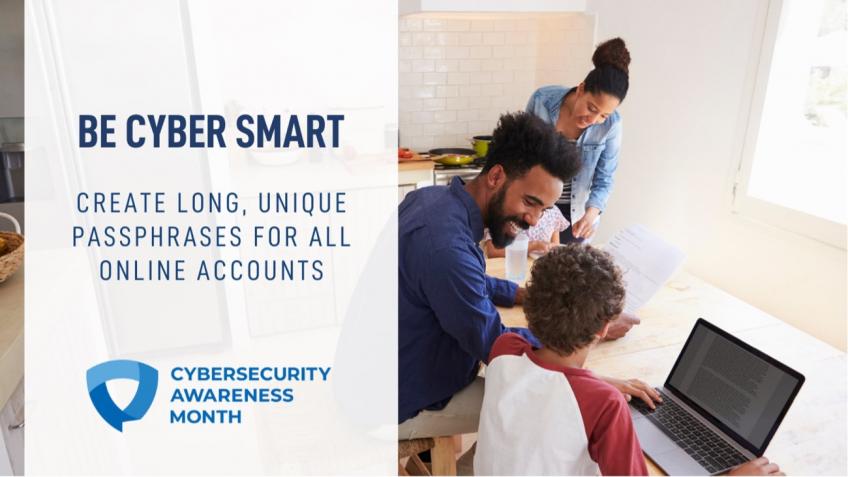
Five ways to be cyber smart in your personal life

This week for Cybersecurity Awareness Month, we are exploring five ways to be cyber smart in your personal life. As we become more connected to the internet, our personal and business data becomes increasingly accessible to bad actors. Our data is valuable and others are constantly trying to find ways to access our data for personal gain. Fortunately, by practicing the basics of good cyber hygiene, you can mitigate the risk of cyber threats for yourself and others.
Enable multifactor authentication
Multi-factor authentication (MFA) provides an additional layer of security when logging into one of your accounts. Instead of only requiring a password to prove that you are who you say you are, an additional layer of authentication is requested. Typically, the additional form of authentication includes a notification on your mobile device (such as a DUO push), a phone call, or entering information provided by a physical token. Enabling multifactor authentication for your services decreases the likelihood that your account will be compromised. Even if a bad actor steals your password, they will not have access to the second form of authentication required to access your account.
Use strong passwords
A strong password is the first line of defense for protecting your accounts. Your passwords should be memorable, long, and unpredictable. Consider using a passphrase instead of a single word as your password. This way, your password will be much more difficult to crack while also being memorable. If you have too many passwords to remember, use a password manager to securely keep track of your information.
Be aware of phishing activity
88% of data breaches are caused by human error, based on research from Tessian. Many of those cases involve phishing. Phishing is the act of sending fraudulent messages to an individual with the intent to steal sensitive information or deploy malicious software. Bad actors often use phishing techniques via phone or email to steal data or install harmful software on victim devices.
To avoid phishing scams, be aware of unexpected and unsolicited messages, especially those that convey urgency. If you receive an unsolicited or unexpected email, do not download any attachments or click on suspicious links that may be included in the message. Check out the Phish Bowl to see the latest, high-impact phishing messages being sent to the University community.
Update applications and systems
Outdated applications and operating systems are the target of most attacks. Another way to keep yourself and others protected from cyber threats is to keep your applications and systems up to date. Stay up to date and apply the latest patches to protect your systems from known vulnerabilities. Configure your device to automatically update or notify you when an update is available.
Backup your data
If your system is infected by malware or other cyber threats, the data on the system could be damaged or lost. To prevent the loss of data, make sure to perform regular backups of your systems. Regularly backing up your data provides the means to restore your data in a previous state if a cyber threat were to impact your system.